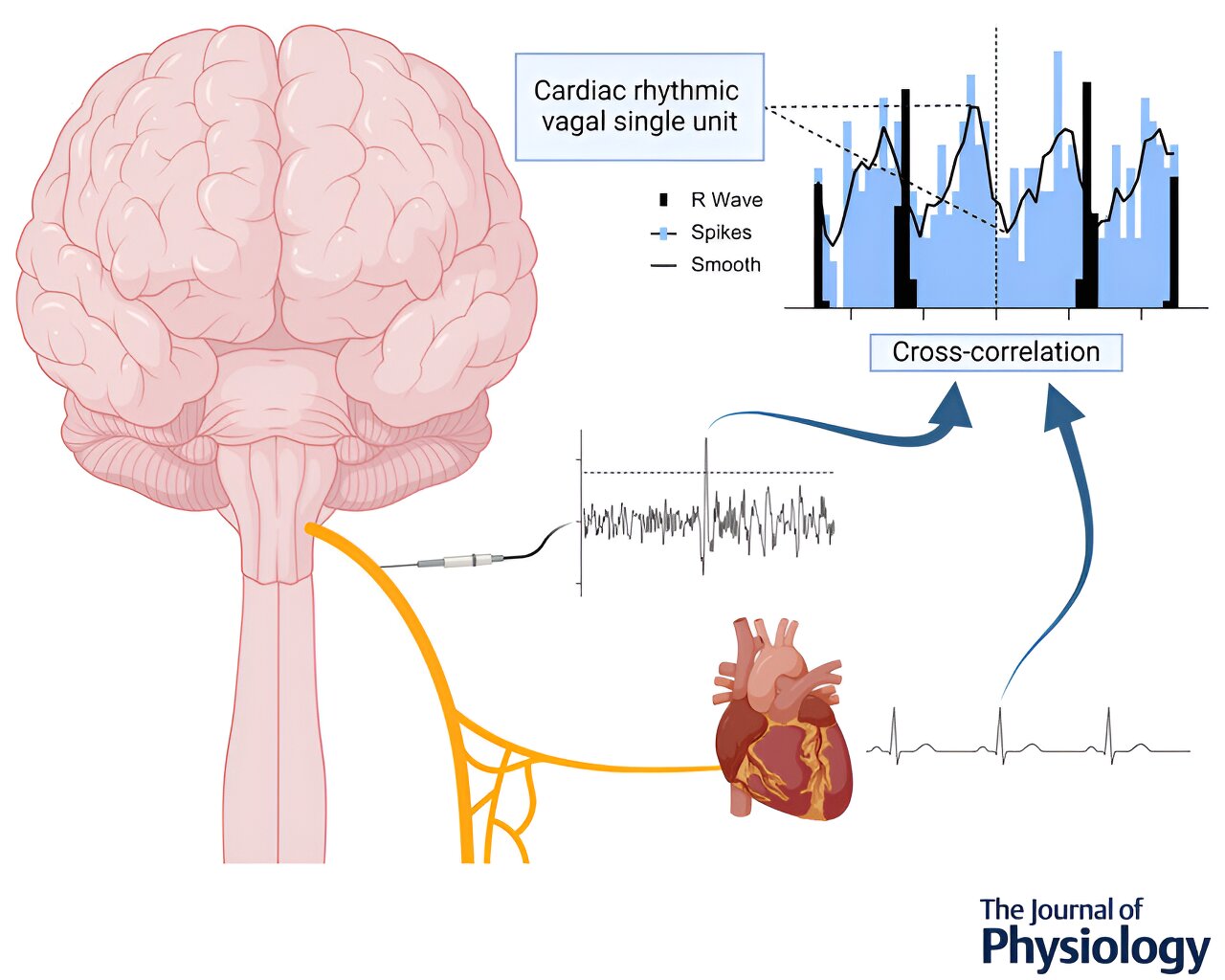
The team that first recorded vagus nerve signals in humans has now isolated the electrical activity of individual neurons responsible for cardiovascular regulation.
Published in the Journal of Physiology, the Monash University-led discovery paves the way for more research into how and why cardiovascular disease develops.
Monash University’s Professor Vaughan Macefield was the first to record electrical signals from the vagus nerve in awake humans in 2020. Before that, our understanding of the physiology of this nerve—which supplies the heart, airways and other organs within the thorax and abdomen—came entirely from animal work.
Now, in another first, researchers from the Human Autonomic Neurophysiology Laboratory in Monash’s School of Translational Medicine have isolated the activity of individual neurons within the vagus nerve. By looking specifically for neurons that fire in sync with the heartbeat, they could then identify those that are responsible for cardiovascular regulation.
“We have managed to isolate the activity of individual vagal neurons and identified those that are responsible for either informing the brain about cardiovascular function (afferent neurons) or controlling the rate of the heart beat (efferent neurons),” first author Dr. David Farmer said.
The vagus nerves contain neurons that are crucial for the brain’s ability to monitor organ function, as well as neurons that directly control organ function. This includes neurons that monitor or modify heart function.
Dr. Farmer said that while animal studies over the past 150 years had provided great insights into the control of cardiovascular function by the brain, it was essential to study human neurons.
He said that while the new study’s initial work was carried out in healthy individuals, the next logical step was to include people with cardiovascular diseases and learn how the behavior of neurons that monitor or modify heart function was changed in those conditions.
“In cardiovascular disease states, the activity of vagal neurons that slow the heart appears to be reduced,” he said. “Additionally, activation of the neurons that monitor heart function produce altered cardiovascular reflexes.
“We don’t know precisely why that is or what neurons are responsible. The ability to isolate the activity of these neurons from vagal recordings in human participants may enable us to work this out, which is pretty cool.”
Professor Macefield, who was senior author on the paper and is also a Professorial Fellow with the Baker Heart and Diabetes Institute, said the work provided proof of principle that the electrical activity of vagal neurons with cardiac function could be directly studied in human beings.
“Because the activity of these neurons is likely altered in cardiovascular disease, it is crucial to understand how and why.” Professor Macefield said. “This technique will enable these investigations.”
More information:
David G. S. Farmer et al, Firing properties of single axons with cardiac rhythmicity in the human cervical vagus nerve, The Journal of Physiology (2024). DOI: 10.1113/JP286423
Citation:
First human vagus nerve recordings pinpoint cardiovascular signals (2024, October 1)
retrieved 6 October 2024
from https://medicalxpress.com/news/2024-10-human-vagus-nerve-cardiovascular.html
This document is subject to copyright. Apart from any fair dealing for the purpose of private study or research, no
part may be reproduced without the written permission. The content is provided for information purposes only.


